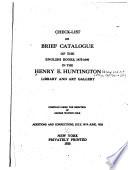
Using IBM® SPSS® Statistics for Research Methods and Social Science Statistics
Ideal either as a companion to a traditional statistics or research methods text or as a stand-alone guide, Using SPSS for Research Methods and Social Statistics is a useful reference for those learning to use the SPSS software for the first time or those with only basic knowledge about SPSS. This student-friendly resource shows readers how to use images and directions drawn from SPSS Version 20 and now uses the latest version of the General Social Survey (GSS, 2010) as a secondary data set.
- ISBN 13 : 145221770X
- ISBN 10 : 9781452217703
- Judul : Using IBM® SPSS® Statistics for Research Methods and Social Science Statistics
- Pengarang : William Edward Wagner,
- Kategori : Social Science
- Penerbit : SAGE
- Bahasa : en
- Tahun : 2012
- Halaman : 156
- Google Book : http://books.google.com/books?id=AZkkAzGmkK0C&dq=intitle:SPSS&hl=&source=gbs_api
-
Ketersediaan :
""An excellent resource for students learning SPSS for the first time-easy to follow.""








